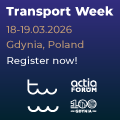The results of the first round of the 2025 presidential elections held on Sunday indicate that Poland is at a crucial decision point, both from a political perspective and regarding the stability of the entire political system. Rafał Trzaskowski received 31.36% of the votes, while Karol Nawrocki garnered 29.54%. The margin is slim, but the stakes are high. Amid this rivalry, new political forces are emerging from both the right and the left—Sławomir Mentzen from the right-wing Konfederacja with 14.8% and Adrian Zandberg from the left-wing Razem with 5.2%. This shift reflects a growing fatigue among voters with the dominance of the two traditional political blocs.
Mentzen’s unexpectedly strong showing indicates that a free-market, sovereign electorate is not only present but expanding, particularly among younger and entrepreneurial individuals. Conversely, Zandberg has successfully appealed to voters seeking a clear progressive and radically leftist alternative. Both groups could play a crucial role in the second round, provided that one of the leading candidates addresses their real interests rather than relying solely on slogans.
However, the upcoming second round poses risks not only for the candidates but for the entire Polish political system. Should Rafał Trzaskowski win, the executive and legislative powers will be concentrated within one liberal-left camp. This scenario could lead to a mono-power structure, where the governing coalition controls the Sejm, Senate, and the Presidential Palace. While this might appear stable, it threatens to undermine the mechanisms of checks and balances, eliminate institutional safeguards, and subjugate the state to the prevailing political agenda. Past experiences show that excessive concentration of power can foster the temptation to abuse it. There are growing concerns among free-market, civic, and freedom-oriented groups that, rather than achieving decentralization and respect for institutions, Poland may experience increased centralization and further partisan polarization in key decision-making.
On the other hand, a victory for Karol Nawrocki could restore political balance. A president from a different camp would play a critical political oversight role, potentially blocking extreme legislative initiatives, stabilizing the political landscape, and compelling the government to seek compromises. However, the situation could also lead to a complete standstill in the state’s legislative functions. Current dynamics indicate that neither of Poland’s two largest political blocs is willing to compromise. At the same time, there is also a struggle over the ruling coalition's future. If Rafał Trzaskowski loses, it could result in a political crisis, potentially causing the collapse of the liberal-left parliamentary majority and requiring new elections.
Thus, the 2025 elections represent a pivotal moment for the entire political system. The outcome will determine not only who occupies the Presidential Palace but also whether Poland will maintain an institutional balance or devolve into a state of autocracy, where the risk of power abuse becomes systemic. For advocates of freedom and effective governance, the message is clear: an effective state must be limited, not omnipotent. The concentration of power poses a threat, regardless of who wields it.
Source, Łukasz Wojdyga
Director of the Center for Strategic
Studies Warsaw Enterprise Institute





.jpg)





